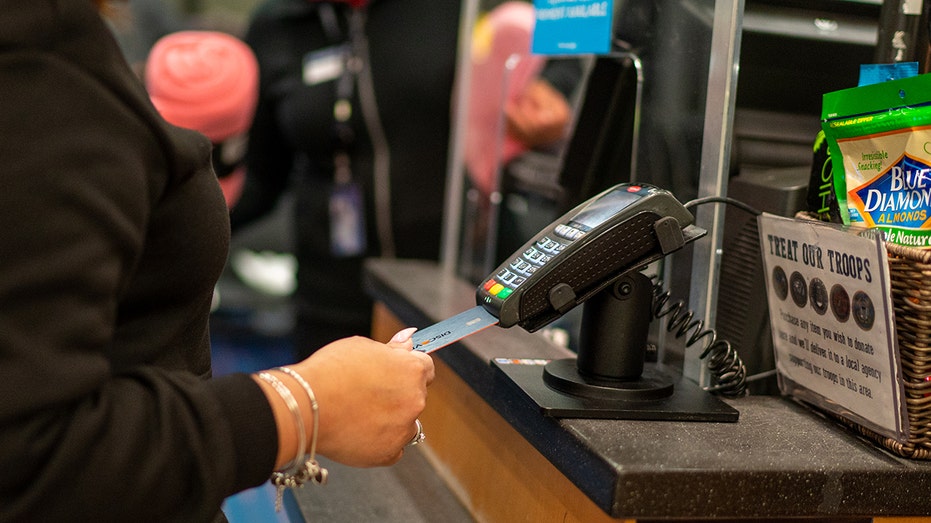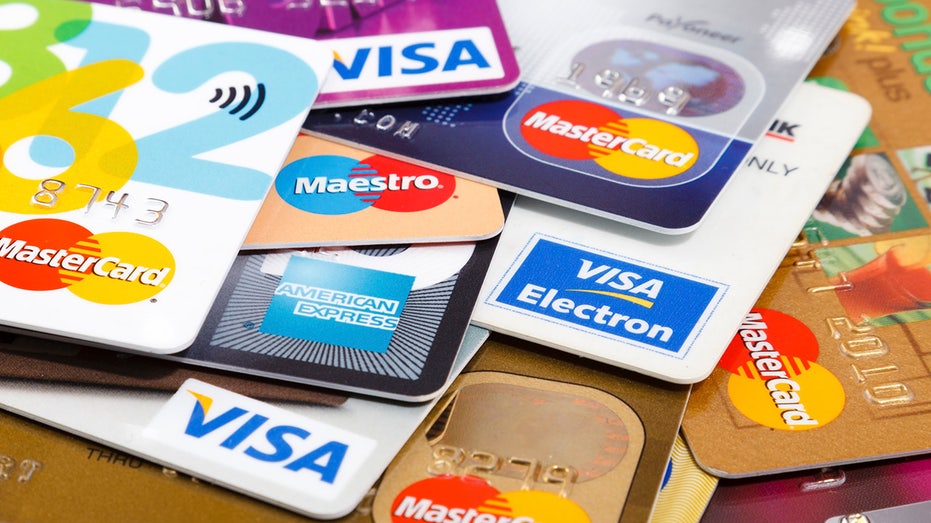Paying credit card debt down is getting harder
Average APR on credit cards runs between 22%-26%
BlackRock's Rick Rieder: Fed will start cutting rates in 2024
BlackRock Global Fixed Income CIO Rick Rieder discusses whether the Fed is close to ending the current rate hike cycle on 'The Claman Countdown.'
Most Americans are well aware of their mortgage rate — especially after the Federal Reserve kept rates unchanged this week, leaving the 30-year fixed rate at 7.19% — but as for their credit cards, not many are aware of what they're paying.
Credit cardholders collectively carry more than $1 trillion in credit card debt across approximately 578 million credit card accounts, according to data from the New York Fed. Plus, the share of U.S. households carrying a credit card balance — revealed to be about 47%, according to a 2023 NerdWallet analysis — exceeds that of mortgages (40%) and car loans (41%).
"The Fed began influencing higher interest rates (through the target federal funds rate) in March 2022. Consumers have seen the immediate impact of this in higher interest rates on long-term loans like mortgages and auto loans, but also on their credit card interest rates," says Elizabeth Renter, data analyst at NerdWallet, who is based in Kansas.
CREDIT CARD DEBT HITS $1T FOR THE FIRST TIME EVER
| Ticker | Security | Last | Change | Change % |
|---|---|---|---|---|
| AXP.MC | NO DATA AVAILABLE | - | - | - |
| V | VISA INC. | 331.61 | +2.58 | +0.79% |
Average Credit Card APR 22%
Average interest rates charged on credit card accounts have risen from just over 16% in February 2022, before the Fed began raising rates, to just over 22% as of May 2023, says Renter. "And if you carry a balance from one month to the next, this quiet increase could be costing you hundreds or even thousands of dollars," Renter tells FOX Business.
Raising credit card interest rates from around 16% to 22% may not seem like a big jump, but depending on your balance and how long it takes you to pay it off, those few percentage points can make that debt far more expensive, according to Renter
For example, Renter illustrates, if you have $10,000 in credit card debt and want to pay it off in three years, that higher interest rate means making bigger payments and therefore paying more interest over the three-year period.
STATES WITH THE HIGHEST CREDIT CARD DEBT

Some people lean on their credit cards as a source of emergency funds, when their savings are exhausted or when they can’t fit unexpected expenses into the budget. (Robert Nickelsberg/Getty Images / Getty Images)
How interest rates affect your monthly debts
Some loans, like mortgages, have fixed rates; so if you took out your mortgage three years ago, you’re enjoying a rate much lower than if you were to take one out now, Renter says.
Other rates, like credit card interest rates, fluctuate over time. " If you carry a balance from month to month on a credit card, higher rates make it more expensive to do so. And because it’s more costly, it may be more difficult to get your balances paid down," she added.
Why more people rely on credit cards
According to Renter, part of the increase in credit card debt is due to inflation. "If you put the same items on your credit card this week as you did two years ago, it will result in more debt because prices are higher," she explains. But, Renter clarifies, some households may be putting more on their credit cards to cope with higher prices or other household financial pressures. "Whatever the cause, higher debt carried for longer is more expensive debt, particularly when interest rates are higher," Renter tells FOX Business.
How to identify your credit card interest rate
The simplest way to track down your credit card interest rate is to look at your monthly statement. "If you don’t get a paper statement in the mail, download or view it online. From there, you can use a credit card interest calculator online to see how your rate impacts how much you pay in interest each month," Renter says. Remember, if you pay off your credit card balance each month, you can typically avoid interest altogether, she says.

Credit cardholders collectively carry more than $1 trillion in credit card debt across approximately 578 million credit card accounts, according to data from the New York Fed. (iStock)
It’s important to note, Renter says, that some people lean on their credit cards as a source of emergency funds, when their savings are exhausted or when they can’t fit unexpected expenses into the budget. "While having an emergency fund in place is a worthwhile goal, don’t beat yourself up if you take on debt during an economic hardship," Renter adds. "If you’re in over your head, a certified nonprofit credit counselor can help you create a debt management plan."
GET FOX BUSINESS ON THE GO BY CLICKING HERE
FOX Business' Megan Henney contributed to this report.




















